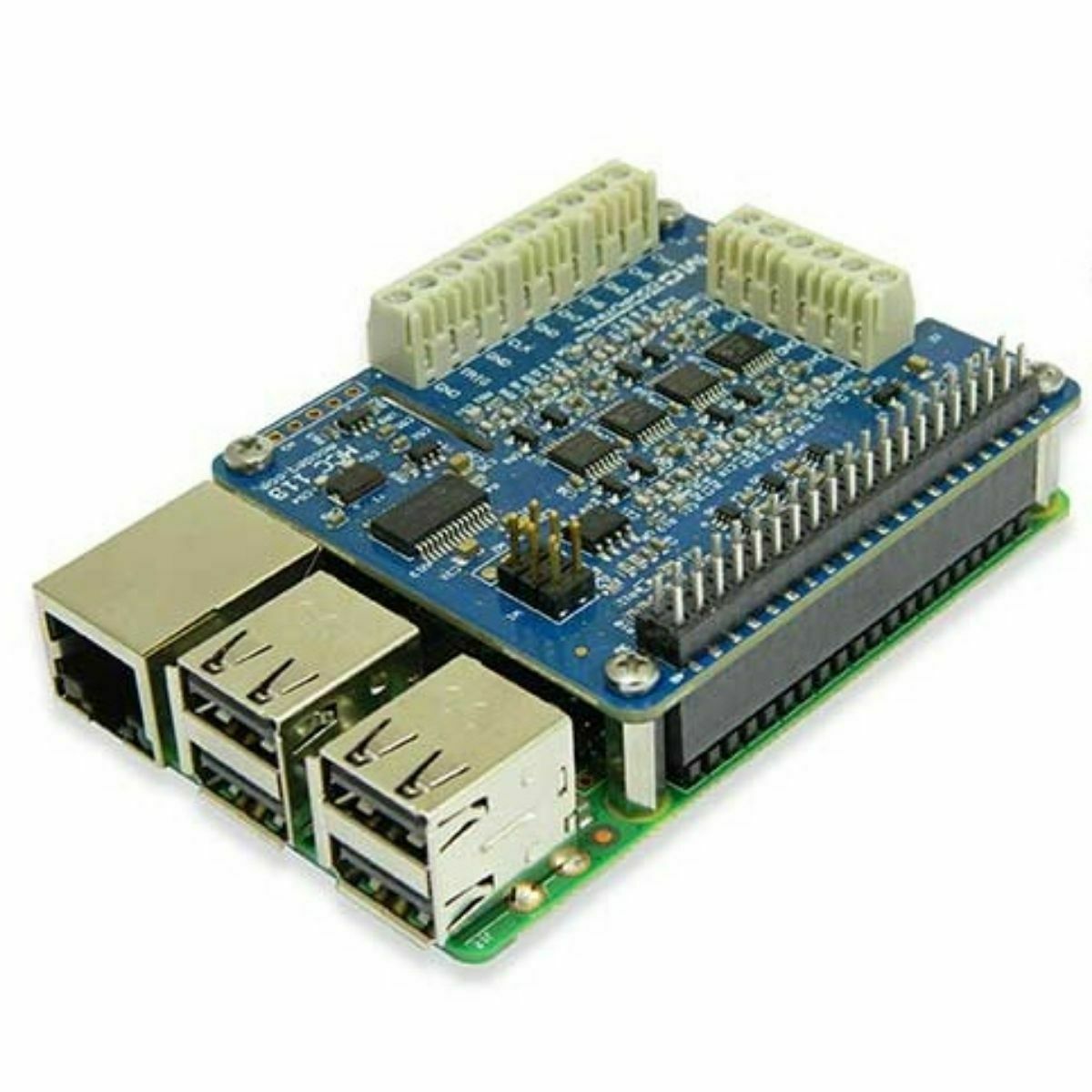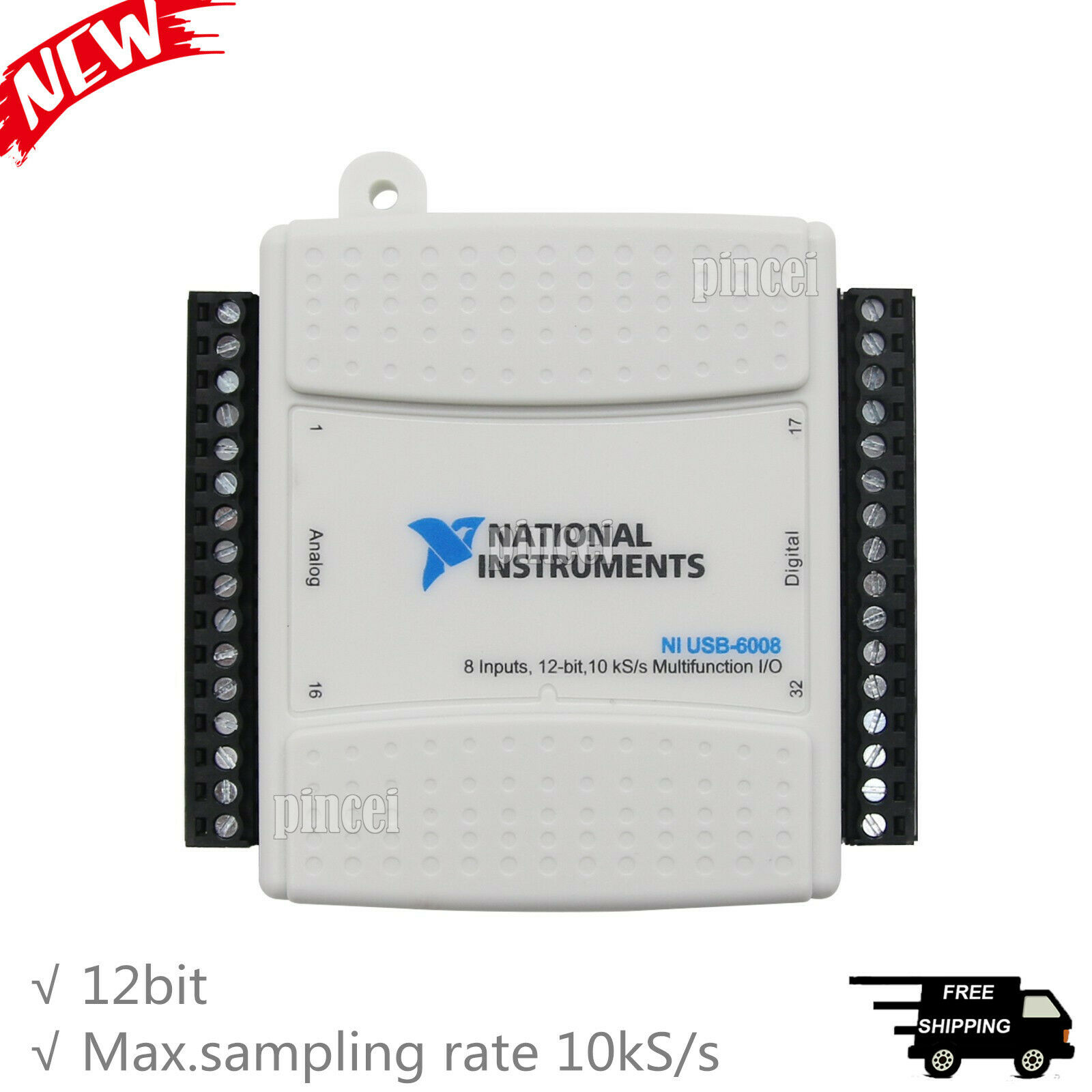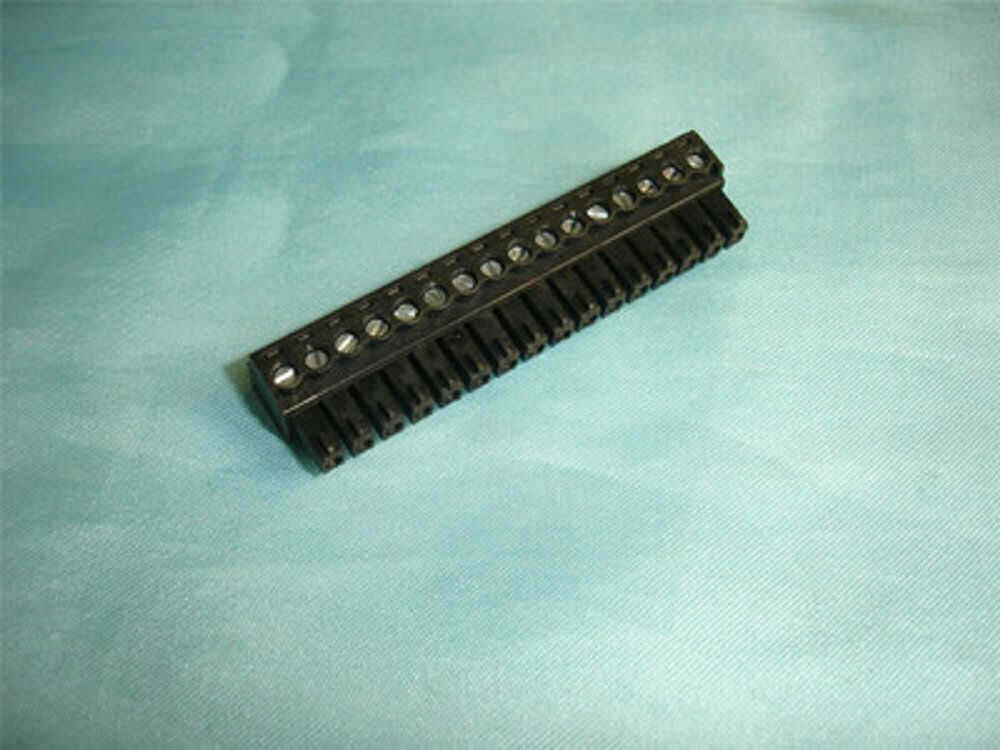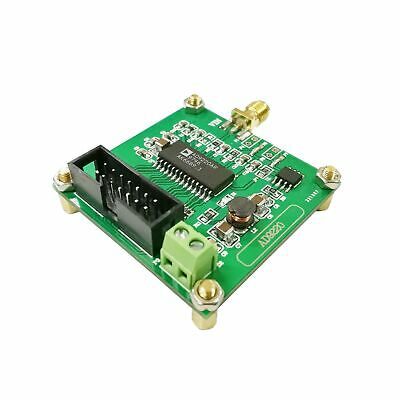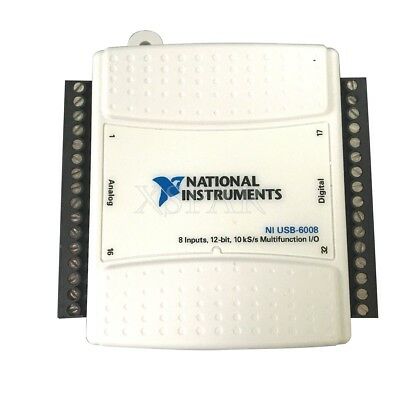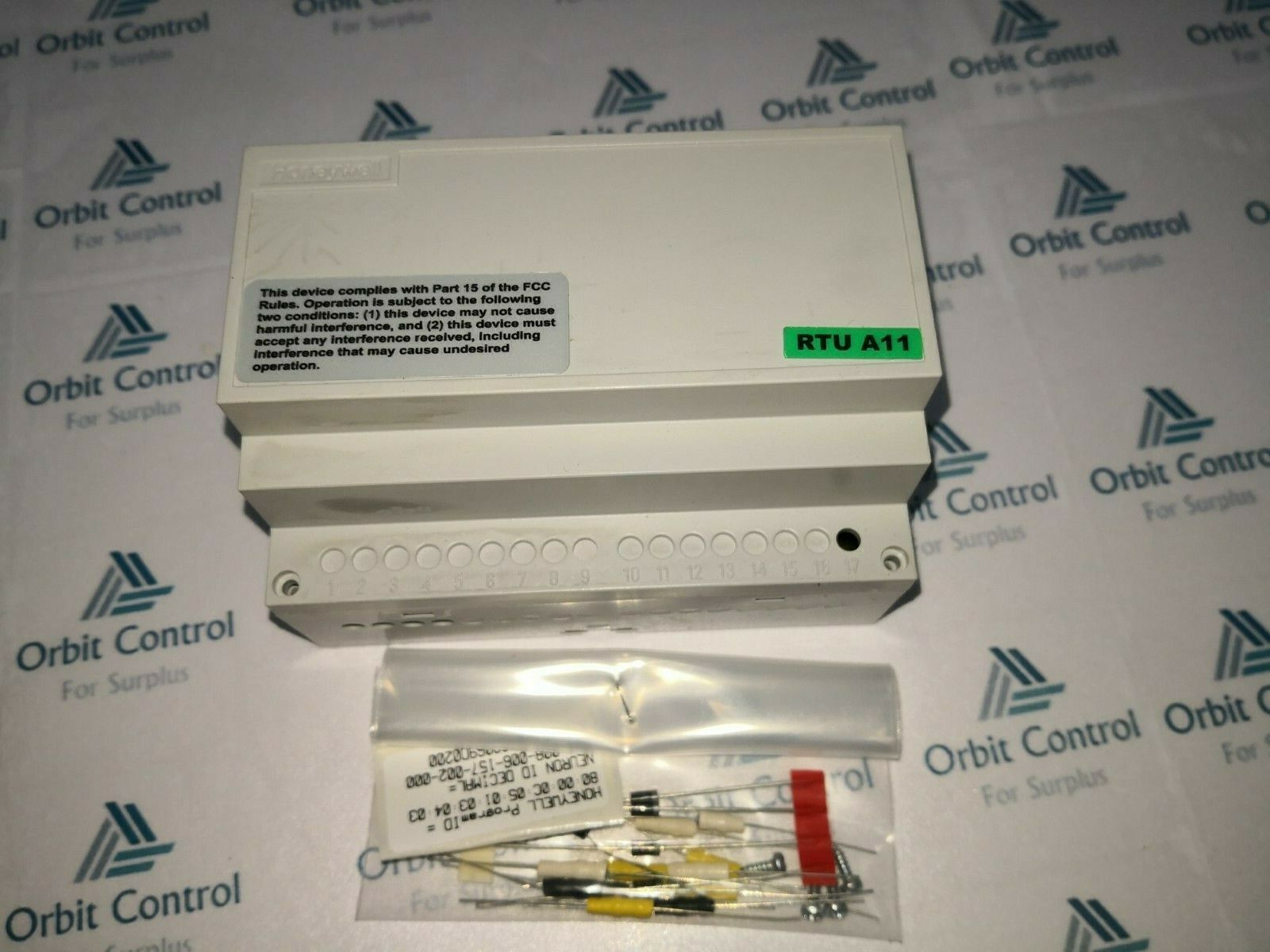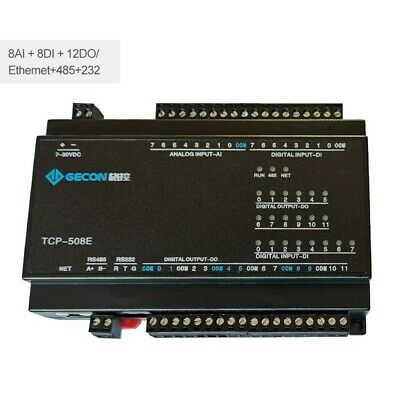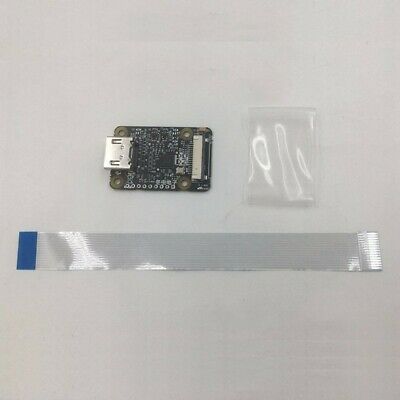-40%
Voltage Measurement DAQ HAT MCC-118
$ 52.27
- Description
- Size Guide
Description
Voltage Measurement DAQ HAT MCC-118.Voltage Measurement DAQ HAT for Raspberry Pi. 8 SE Analog Input, 12-bit, 100KS/s. Range +-10VDC. Power: 3.3 V provided by Raspberry pi. Up to eight MCC 118 devices can be stacked. Raspberry Pi is not included.
The MCC 118 is a voltage HAT (Hardware Attached on Top) board designed for use with Raspberry Pi, the most popular single-board computer on the market today. A HAT is an add-on board with a 40W GPIO (general purpose input/output) connector that conforms to the Raspberry Pi HAT specification. The MCC 118 HAT provides eight single-ended (SE) analog inputs for voltage measurements. Up to eight MCC HATs can be stacked onto one Raspberry Pi.
Features:
Eight 12-bit voltage inputs.
100 kS/s max sample rate (320 kS/s aggregate for stacked boards).
±10 V input range.
Onboard sample buffers allow high-speed acquisition.
External scan clock I/O.
External digital trigger input.
Screw terminal connections.
Stack up to eight MCC HATsonto a single Raspberry Pi.
Technical Data
Analog Input
A/D converter
type Successive approximation
ADC resolution
12 bits
Number of channels
8 single-ended
Input voltage range
±10 V
Absolute maximum input voltage
CHx relative to GND
±25 V max (power on or power off)
Input impedance
1 MO (power on or power off)
Input bias current
10 V input
–12 µA
0 V input
2 µA
–10 V input
12 µA
Monotonicity
Guaranteed
Input bandwidth, small signal (–3 dB)
150 kHz
Maximum working voltage
Input range relative to AGND
±10.1 V max
Crosstalk (adjacent channels, DC to 10 kHz)
–75 dB
Input coupling
DC
Recommended warm-up time
1 minute min
Sample rate, hardware paced
Internal scan clock
0.004 S/s to100 kS/s, software-selectable
External scan clock
100 kS/s max
Sampling mode
1 A/D conversion for each configured channel per clock
Conversion time, per channel
8 µs
Scan clock source
Internal scan clock
External scan clock input on terminal CLK
Channel queue
Up to eight unique, ascending channels
Throughput, Raspberry Pi® 2 / 3
Single board
100 kS/s max
Multiple boards
Up to 320 kS/s aggregate*
Throughput, Raspberry Pi A+ / B+
Single board
Up to 100 kS/s*
Multiple boards
Up to 100 kS/s aggregate*
Accuracy
Analog Input DC Voltage Measurement Accuracy Accuracy
Range
±10 V
Gain error (% of reading)
0.098 max
Offset error
11 mV max
Absolute accuracy at full scale
20.8 mV
Gain temperature coefficient(% reading/°C)
0.016
Offset temperature coefficient (mV/°C)
0.87
Noise Performance
Range
±10 V
Counts
5
LSBrms
0.76
External Digital Trigger
Trigger source
TRIG input
Trigger mode
Software-selectable for rising or falling edge, or high or low level
Trigger latency
Internal scan clock
1 µs max
External scan clock
1 µs + 1 scan clock cycle max
Trigger pulse width
125 ns min
Input type
Schmitt trigger, weak pull-down to ground (approximately 10 K)
Input high voltage threshold
2.64 V min
Input low voltage threshold
0.66 V max
Input voltage limits
5.5 V absolute max, –0.5 V absolute min,
0 V recommended min
External Scan Clock Input/Output
Terminal name
CLK
Terminal types
Bidirectional, defaults to input when not sampling analog channels
Direction (software-selectable)
Output
Outputs internal scan clock, active on rising edge
Input
Receives scan clock from external source, active on rising edge
Input clock rate
100 kHz max
Clock pulse width
400 ns min
Input type
Schmitt trigger, weak pull-down to ground (approximately 10 K),
protected with a 150 kO series resistor
Input high voltage threshold
2.64 V min
Input low voltage threshold
0.66 V max
Input voltage limits
5.5 V absolute max, –0.5 V absolute min, 0 V recommended min
Output high voltage
3.0 V min (IOH = –50 µA), 2.65 V min (IOH = –3 mA)
Output low voltage
0.1 V max (IOL = 50 µA), 0.8 V max (IOL = 3 mA)
Output current
±3 mA max
Memory
Data FIFO
7 K (7,168) analog input samples
Non-volatile memory
4 KB (ID and calibration storage, no user-modifiable memory)
Power
Supply current
3.3 V supply
Typical
35 mA
Maximum
55 mA
Interface
Raspberry Pi GPIO pins used
GPIO 8, GPIO 9, GPIO 10, GPIO 11 (SPI interface) ID_SD, ID_SC (ID EEPROM) GPIO 12, GPIO 13, GPIO 26, (Board address)
Data interface type
SPI slave device, CE0 chip select
SPI mode
1
SPI clock rate
10 MHz, max
Environment
Operating temperature
0 °C to 55 °C
Storage temperature
–40 °C to 85 °C max
Relative humidity
0% to 90% non-condensing
Mechanical
Dimensions (L × W × H)
65 × 56.5 × 12 mm (2.56 × 2.22 × 0.47 in.) max
